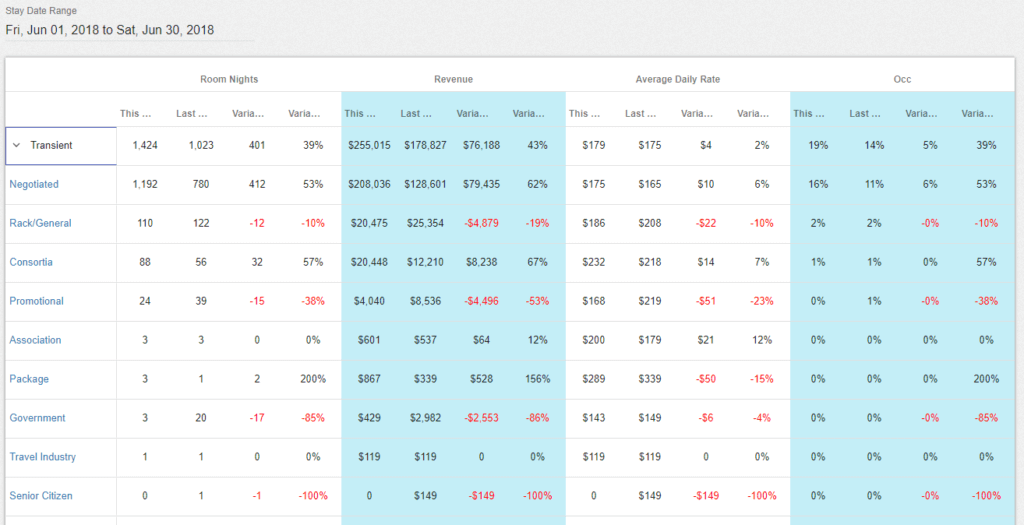
Marketing segmentation is the process of dividing your customers into groups, so you have a clear understanding of where your business comes from. Are your guests individual or group travelers? Where do they live, how and when do they book, and what is their price sensitivity? Why do they book your hotel?
Consumers in a certain segment, who share certain traits, will also respond similarly to marketing strategies. Hotels with smart, in-depth market segmentation have, to put it simply, better control over their businesses.
Defining Market Segmentation for Hotels
Market segmentation, or dividing your hotel’s business into categories, often focuses on product, pricing, and distribution.
“Each segment tends to have a different booking behaviour. It’s important to be able to segment out your business, so you know who books when, what kind of rates they book, and just what their booking behavior is,” says Nicole Adair, SHR Corporate Director of Revenue Management.
“It also gives you information about their travel patterns,” she says. “Different segments will tend to travel on a different day of the week or a different month out of the year, for instance, and knowing this lets you forecast your segments.”
How Hotels Use Market Segmentation Data
Your sales team likes market segmentation reports because they clearly delineate pace and trends. Perhaps the reports show that a certain part of your corporate segment has been trending downward for the last year. Your sales staff can investigate why you are losing that corporate business and figure out what you need to do to get it back.

Segmentation information is also valuable to the marketing department. “Maybe there’s a soft period,” says Adair, “or a segment that doesn’t travel on weekends, or travels very heavily on weekdays. Knowing this lets you come up with marketing strategies to help drive their business into places where they’re not booking right now.”




